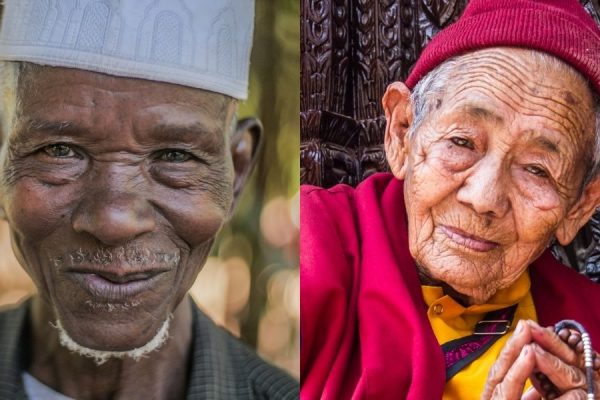Society has a certain definition on what makes a man high-value (largely rooted in material wealth). But what does Islam say makes a high-value man?
Society has a certain definition on what makes a man high-value (largely rooted in material wealth). But what does Islam say makes a high-value man?
Have you ever wondered about the Islamic take on what truly defines a high-value man? Scroll through your social media feeds, and you’ll stumble upon countless discussions on this topic. People tend to rattle off a checklist of qualities that supposedly make a man valuable. Most of these tips revolve around making yourself more appealing to women. It’s like a man’s worth is based on his bank balance or how good-looking his woman is.
Here are ten things that make a man high value in the eyes of Allah. This is by no means an exhaustive list.
God-Consciousness
A significant sign of a high-quality man in Islam is his possession of taqwa, which translates to conscious awareness and fear of God. Taqwa goes beyond mere religious rituals; it reflects a deep-rooted consciousness of Allah’s presence in every aspect of life. A man who embodies taqwa is committed to living a life aligned with Islamic principles, consistently choosing the right path even when no one is watching. This virtue encompasses honesty, humility, and ethical behaviour, as well as treating others with respect and compassion. A man with taqwa will strive to fulfil his obligations, treat his family with kindness, and demonstrate empathy towards all of creation. Taqwa serves as a guiding compass, influencing every decision and action with the intention of seeking Allah’s pleasure. In essence, taqwa sets the foundation for a man’s moral character, making it an essential marker of his true value in the eyes of Allah.
You can’t be considered a high-value man if you sin and disregard the laws of God. Nor if you have poor conduct or possess qualities frowned upon in Islam, such as arrogance.
Truthful and Trustworthy
Being truthful and trustworthy are integral indicators of a high-quality man, according to Islamic teachings. These virtues are foundational in establishing strong relationships, maintaining social harmony, and upholding justice. A man who consistently speaks the truth and keeps promises demonstrates a deep sense of integrity and responsibility. Truthfulness is not only about accurate speech but extends to the honesty of intentions and actions. A trustworthy man can be relied upon, whether in matters of business, family, or community. Such an individual upholds their commitments, safeguards the secrets entrusted to them, and treats others’ rights with utmost respect.
The Prophet Muhammad (peace be upon him) was known as “Al-Amin,” the trustworthy, even before his prophethood, which emphasises the importance of these qualities. By being truthful and trustworthy, a man exhibits a high standard of character that reflects his strong connection to his faith and ability to contribute positively to society.
In essence, be a man of your word because a man is only as good as his word.
Modesty
Being modest is a distinctive trait that signifies a high-quality man in Islam. Modesty reflects humility and self-awareness, allowing a man to recognise his strengths and accomplishments while avoiding arrogance and ostentation. This quality stems from the understanding that all blessings come from Allah, and showcasing them with humility is a way of acknowledging this divine source. Modesty also extends to one’s behaviour and interactions, preventing a man from seeking undue attention or engaging in inappropriate actions. It signifies a respectful attitude towards others, irrespective of their social or economic status. A modest man doesn’t feel the need to boast about his achievements, wealth, or appearance, as he values the content of his character over external attributes. The Prophet Muhammad (peace be upon him) was celebrated for his profound humility and simple lifestyle despite being the leader of a burgeoning community. Thus, modesty is a fundamental quality of a high-quality man in Islam, reflecting his sincerity, piety, and genuine concern for the well-being of others.
Men must dress and behave modestly, especially in their interactions with sisters. Failing to uphold modesty can lead to unintentional flirtations or even crossing ethical boundaries. To avoid this, consider a straightforward guideline: treat your interactions with sisters in a manner that you would appreciate someone treating your own daughter. If the behaviour would be unacceptable when directed towards your child, then it’s clear that we should not engage in it. It’s about simplicity, not complexity.
Generous and Humble
One of the least desirable qualities to possess is stinginess. So, my brothers, when you’re with your wife or planning to take your family out, try not to become the “coupon guy.” I’m not suggesting that you shouldn’t be mindful of spending, but remember the importance of being generous.
Gifts for your family hold great value. They don’t have to be extravagant; the thought matters the most. It’s about the gesture of appreciation and love. A man visiting the marketplace to buy a gift for his family is a wonderful act that strengthens the bonds of affection and care.
Hardworking
A distinctive mark of a high-quality man is his dedication to earning halal sustenance through diligent work without relying on handouts, charity, or government funds. While exceptions certainly exist for those facing genuine hardships, this principle reflects the Islamic emphasis on self-reliance, responsibility, and the dignity of self-earned sustenance. Such a man exemplifies the Prophet’s teachings, emphasising the importance of honest labour and providing for one’s family.
In addition to working hard for halal sustenance, another crucial attribute of a high-quality man is his modest approach towards wealth. Islam advocates humility and discourages ostentatious displays of affluence. A man of high calibre recognises that wealth is a blessing from Allah and should be used responsibly and discreetly. Flaunting material possessions can lead to arrogance, envy, and a skewed sense of self-worth. Instead, a true Muslim gentleman uses his wealth to support his family, contribute to the community’s well-being, and fulfil his obligations towards those in need, all while keeping his intentions sincere and his actions humble.
Controls his Emotions
Controlling one’s emotions is a hallmark of a high-quality man in Islam. Islam emphasises the importance of emotional intelligence and self-discipline. A man who can manage his emotions, especially in challenging situations, displays strength of character and maturity. He doesn’t allow anger or frustration to dictate his actions but rather seeks guidance from the teachings of the Prophet Muhammad (peace be upon him) on responding with patience and kindness. This control over emotions reflects a deep connection with his faith, as he understands that Allah appreciates those who exercise restraint. By mastering his emotions, he becomes a source of tranquillity and stability for his family and community, fostering an environment of understanding, empathy, and harmony. Such a man not only earns respect but also embodies the teachings of Islam, demonstrating that true strength lies in the ability to remain composed and steadfast in the face of life’s challenges.
Good Personal Hygiene
Maintaining good personal hygiene is a fundamental aspect of being a high-quality man, according to Islamic teachings. Islam places significant importance on cleanliness as it is considered a reflection of a person’s faith and respect for oneself and others. A man who takes care of his hygiene, ensuring he doesn’t have unpleasant body odour, food remnants, or unkempt appearance, signifies his commitment to embodying the principles of cleanliness and self-respect laid out in the faith. Such attention to personal grooming and hygiene is not just about physical appearance; it’s a spiritual practice that signifies his reverence for the body that Allah has bestowed upon him. By upholding these practices, a man demonstrates his dedication to living a life of dignity, modesty, and consideration for others, virtues deeply cherished in Islam.
Taking Care of Physical Health
In the realm of Islam, caring for one’s physical health is seen as an integral part of being a high-quality man. The body is viewed as a trust from Allah, and as such, preserving its well-being is not only a personal responsibility but also a spiritual obligation. By maintaining good physical health, a man enhances his capacity to fulfil his various roles in life – as a servant of Allah, a provider for his family, and a contributing member of society. Engaging in regular exercise, consuming nutritious food, and seeking preventive healthcare showcases his recognition that a healthy body is a vessel through which he can better serve his Creator and carry out righteous deeds. Striving to keep oneself in good health also signifies discipline, self-control, and the ability to manage one’s desires – fundamental qualities in navigating life’s challenges. In taking care of his physical well-being, a man aligns himself with the teachings of Islam, embodying the holistic harmony between spiritual and physical dimensions that the faith encourages.
Taking Care of Spiritual Health
A mark of a high-quality man from the Islamic perspective is his commitment to nurturing his spiritual health. Recognising that the human soul is the essence of his connection with Allah, he prioritises the development of his faith through regular acts of worship, reflection, and seeking knowledge. By tending to his spiritual well-being, he cultivates qualities of humility, gratitude, and patience – attributes that guide him in his interactions with others and in facing life’s trials. Engaging in acts of worship such as daily prayers, fasting, and regular recitation of the Quran not only deepens his connection with Allah but also serves as a moral compass for his actions. Additionally, he dedicates time to self-reflection, assessing his intentions and actions, and seeking avenues for self-improvement. Through continuous learning and seeking knowledge, he refines his understanding of Islam and its teachings, ensuring that his faith is well-informed and rooted in authentic principles. This commitment to spiritual growth not only benefits him personally but also radiates positively in his relationships, contributing to a harmonious family, community, and society. In embracing the guidance of Islam and tending to his spiritual health, he embodies the essence of a high-quality man who is attuned to his earthly and spiritual responsibilities.
Is the Leader of His Family
A pivotal sign of a high-quality man, according to the Islamic perspective, is his role as a leader within his family. He understands that his responsibility transcends mere provision and extends to guiding his family towards righteousness and fostering a harmonious environment. He takes the initiative in nurturing religious growth within the household, ensuring daily prayers are done together. He leads by example, engaging in worship and encouraging his family members to participate alongside him. This encompasses halal activities and holidays, where he strives to align family celebrations with Islamic values, avoiding extravagance and adhering to the principles of moderation and gratitude. His commitment to quality time with his children and wife is unwavering; he dedicates time to meaningful interactions, listens to their concerns, and actively engages in their lives. This leadership role is rooted in mutual respect and consultation, where decisions are made collectively, fostering an environment where each family member’s voice is heard and valued. In embodying this role, he channels the teachings of the Prophet Muhammad (peace be upon him), who exemplified the importance of kindness, compassion, and active involvement in family affairs. This high-quality man, as a leader within his family, sets an inspiring example for future generations, nurturing a legacy of strong faith, unity, and love.
This article is inspired by this online lecture.





